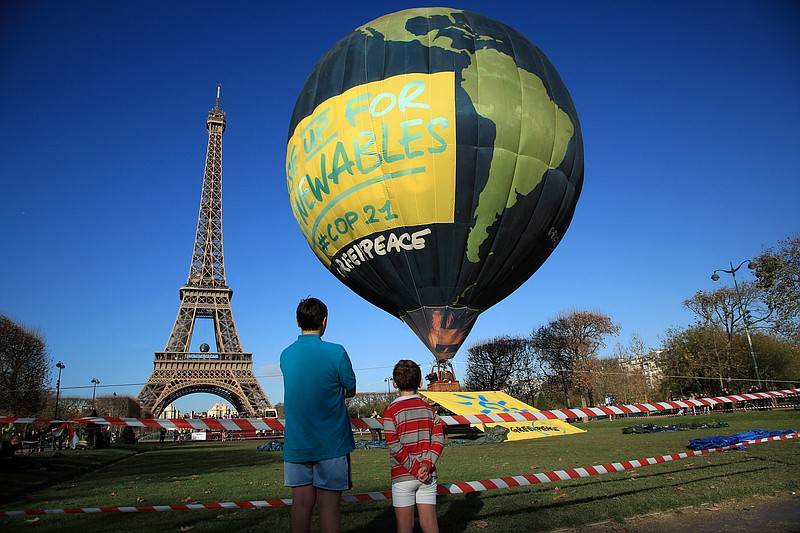Over the next two weeks, Paris will lead the world in rhetoric as 150 leaders from various countries attempt to explain how only billions of dollars taken out of your pocket can save the world from climate change.
So, watch your wallets.
You'll hear how the climate conference - tabbed COP21 - is the last, best chance to save the world - to prevent coastal cities from being flooded, to keep animals from dying, to keep it from being too hot, too cold, too wet or too dry, to reduce the intensity of tornadoes and hurricanes, and, if you believe United States President Barack Obama, to prevent terrorism.
"A political moment like this may not come again," United Nations Secretary-General Ban Ki-Moon said.
"Humanity faces many threats," England's Prince Charles said, "but none is greater than climate change."
None.
Evidently, terrorism, the inconvenient truth that will surround the climate talks in the City of Light from the incidents that killed 130 people on Nov. 13, is only a JV threat.
Indeed, said Obama, the climate change summit is a "powerful rebuke" to terrorists.
It's actually just the opposite. What better way to play into the hands of terror-sponsoring countries and organizations than to have them be able to fulfill the oil needs of Western and developing countries who, even if they decide to completely convert to renewable energy, still will have to rely on fossil fuels in the next decade or more?
This is the same Obama who said he would prefer the United States, which would profit mightily from energy independence, keep in the ground what our own Energy Information Administration reports is access to more recoverable fossil fuel resources than any nation in the world.
The goal of the Paris talks is a legally binding agreement in greenhouse gas emissions to hold global average temperatures short of a 2 degree Celsius (3.6 degrees Fahrenheit) increase over pre-industrial global temperatures.
Such an agreement, built on a series of national pledges to reduce emissions, also is expected to determine how much money wealthy countries will put into the United Nations Green Climate Fund to help poor countries with climate change, how much will be invested in green energies, and how much oil and gas producers would lose if countries agree to reduce emissions.
Rich countries would be asked to pony up $100 billion a year beginning in 2020 to developing countries to shift their economies to green energies and help mitigate their guesses about any effects of changing temperatures. The U.S. has made the largest pledge - $3 billion - of the $10.2 billion already promised by 38 countries, but it hasn't officially signed over any of it yet.
Where such an amount would come from in a budget in which nondiscretionary spending increases and discretionary spending declines every year has not been communicated by the White House.
While Obama dreams of the Paris summit cementing sort of climate broker legacy for him, studies continue to indicate the cost to Americans of his energy plans, from higher energy prices forecast for those who can least afford them as a result of his Clean Power Plan to losses of jobs in the fossil fuel industries and from the lack of development of the Keystone XL pipeline.
The president also is facing a headwind of opposition to his energy policies in Congress, by lawsuits challenging his Clean Power Plan by more than half the 50 states and by a potential 2016 presidential winner who could roll back whatever agreement he makes in Paris.
Compared to Obama, Chinese President Xi Jinping seemed to strike the right tone as to where countries ought to be, mentioning "a shared mission," "join[ing] hands" and "win-win cooperation."
"It's imperative to respect differences' among countries, especially developing ones," he said. "Addressing climate change should not deny the legitimate needs of developing countries to reduce poverty and improve living standards."
It's the way the United States should look at its environmental policies - to strive for clean energy and energy independence and to do so through plans that save jobs, don't fall most heavily on the poor, use greener energies only as they make more economic sense and are never put ahead of the country's security in priority.
